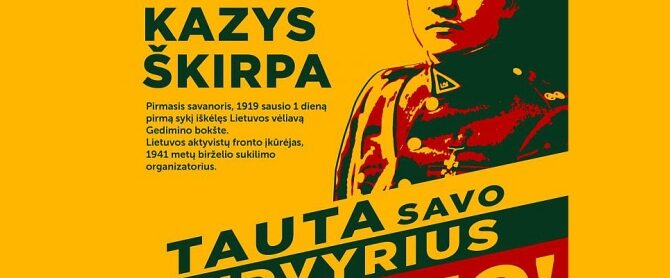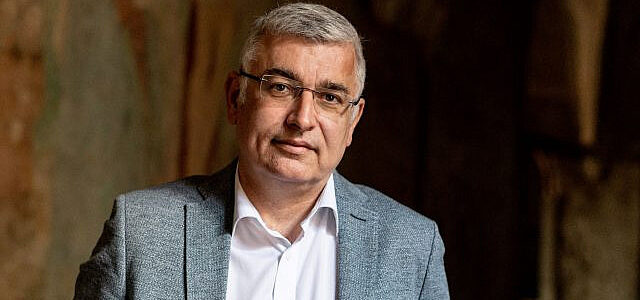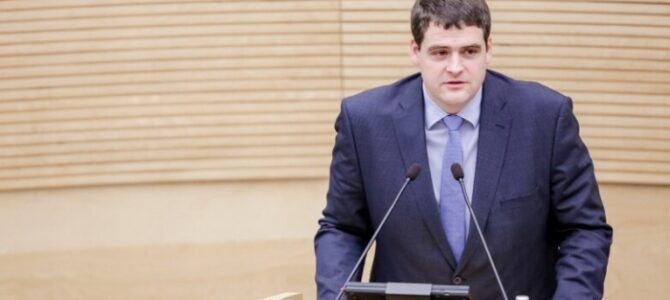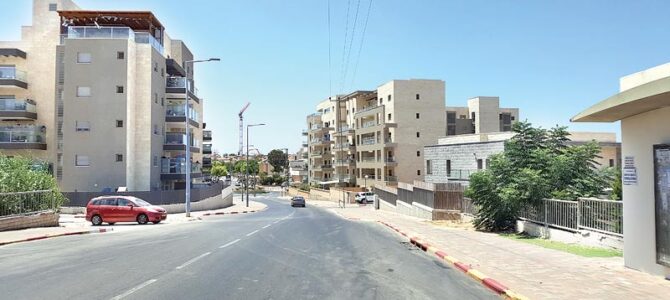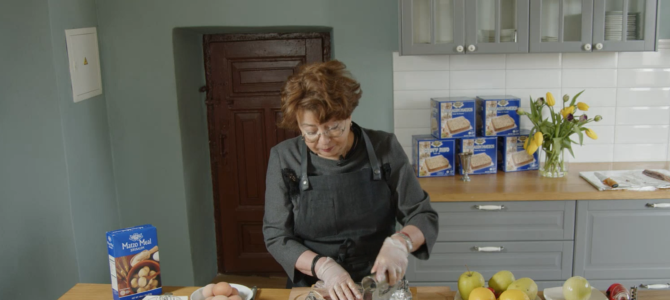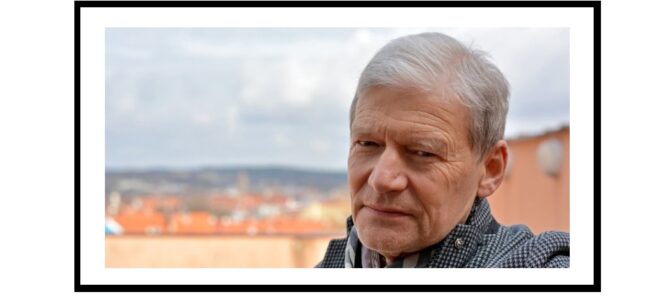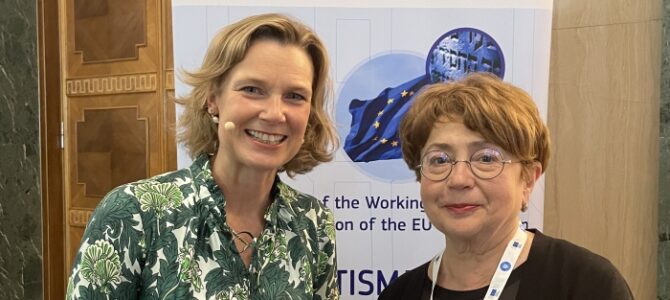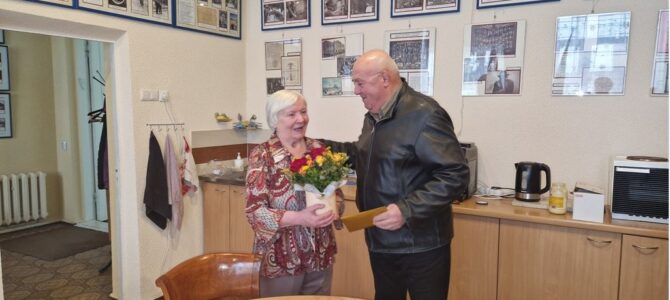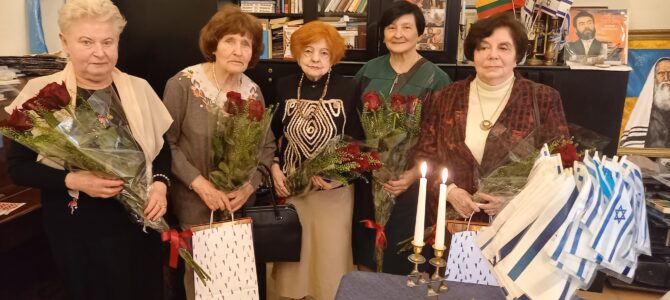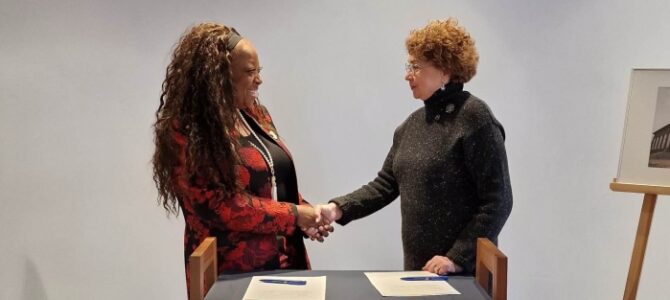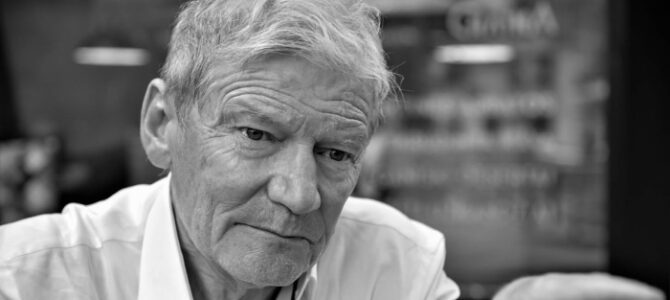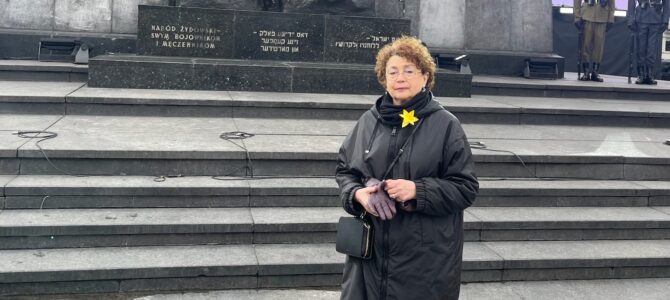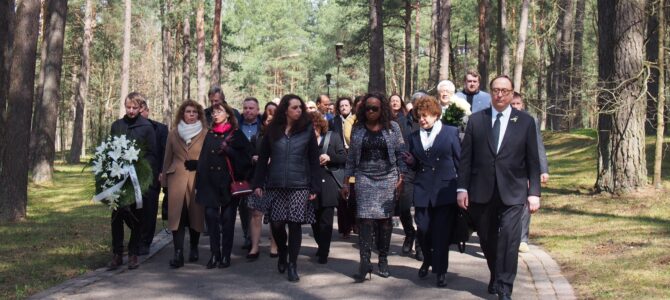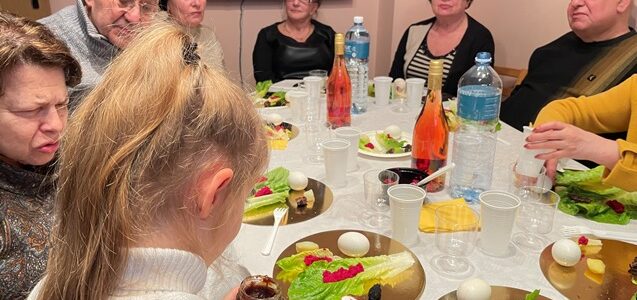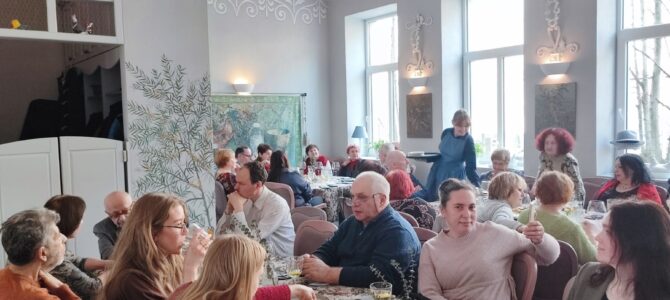Photo: Poster honoring Kazys Skirpa. Translation: “A Nation which respects itself should know its heroes: Diplomat Colonel Kazys Skirpa First volunteer who raised the flag of Lithuania on Gediminas Tower on January 1, 1919, the head of the Lithuanian Activist Front, organizer of the June 1941 uprising. The Nation knows its heroes!”
Hate against minorities is supposedly illegal in Lithuania. Lithuanian MP Žemaitaitis spewed obscene tropes against Jews which did not make sense in the 1200s, nor in 1941, and not now, either. In subsequent posts, Žemaitaitis called for the ethnic cleansing of Jews from Lithuania.
The Austrian, German, American and Israeli ambassadors issued statements condemning Žemaitaitis, as did the prime minister of Lithuania. The Lithuanian Jewish Community has requested Žemaitaitis be referred to the public prosecutor for hate crimes charges.
Superficially, the case is straightforward. The crimes are obvious, the law is clear, there is no question of his guilt. Hate is simply hate. But, the Government of Lithuania has a problem.


